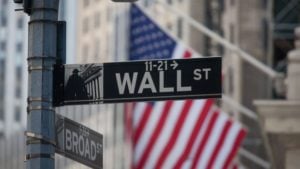
Credit: Sony Picture Classics, Alchetron, https://alchetron.com/cdn/Inside-Job-2010-film-images-03aaa1a2-5453-48bf-b40c-f419251636a.jpg
The Federal Reserve, the central bank of the US, purposefully ignored warnings that a seismic financial disaster was approaching, and Frederic Mishkin, a previous member of the Board of Governors, stammers in response to this accusation, tripping onto the useless answer he eventually manages to get out. By the time Charles Ferguson, the director of the Oscar-winning 2010 documentary ‘Inside Job’, has landed his third blow, we almost wish Fred had stayed at home, like the Chair of the Federal Reserve at the time, Ben Bernanke, who declined to be interviewed.
Robert Rubin. Alan Greenspan. Larry Summers. Ben Bernanke. These are some of the names that take a hit in this thrilling and damning dissection of the 2007-8 financial crisis, and who prudently declined to represent themselves. Ferguson’s style, both as a filmmaker and an interviewer, is confrontational, lean, direct and loaded with a depth of research. No one is safe from his incredulous rage. But it is important to remember that the responsibility for this crisis – one we are still covered in the afterbirth of today – is just dust on the shoulders of their expensive suits.
Governments and their central banks dived in front of the crashing train and a recession worse than any since the 1930s bludgeoned the global economy. ‘Inside Job’ is an opportunity to sit face-to-face, whether they were interviewed or not, with many of the men responsible for the economic conditions that helped elevate nationalism in the 2010s (which, depending on whose side you’re on, is either a blessing or a crisis itself).

Director Charles Ferguson – Credit: Associated Press, www.businessinsider.com/watergate-in-full-epic-documentary-shows-at-berlin-festival-2019-2?r=US&IR=T
What excites is the filmmakers’ showmanship, specifically in the editing room. You wouldn’t need to know a thing about this event to determine who to admire and who to despise. When Scott Talbott, dubbed the chief lobbyist of the firm “that represents nearly all of the world’s financial companies”, is confronted by Ferguson about the “large-scale criminal activity” of the companies he lobbies for, he denounces the criminality. Ferguson then follows Scorsese-esque music cues and quickfire cutting between footage of mugshots, headlines and suits in handcuffs as we’re told that since the start of deregulation, leaving these companies free to write the playbooks, they engaged in criminal activity “again and again and again.”
Whilst Ferguson summarises the economics of these systems, Matt Damon provides a recognisable voice as narrator. Damon smoothly breaks down how the 2007-8 financial crisis was created by a blitz of deregulation, fraud and predatory loans. The claims from Wall Street that their dealings are too complex for us to bother about are made starkly worthless by these fluid, concise descriptions.
Most interesting of all is how many of them, floating between executive posts and government positions, also serve as economists at world-leading universities. The charge here is that they covered all bases when pushing an agenda of deregulation and greed. The Great Recession that followed the collapse of this system ensured that the stain on the last ten years was political resentment, polarisation and nationalism.

Credit: Bloomberg, www.bnnbloomberg.ca/wall-street-is-quietly-telling-companies-not-to-draw-their-loans-1.1414480
In the US, unemployment peaked, people lost their homes and “retirement accounts vaporized”. Europe saw a ballooning of government deficits and austerity measures were implemented as a solution to their debt-laden economies, resulting in stagnant wages, regressive taxation and cuts to public services. Across both continents people were furious about the bailouts after the crash because they were paying the price. Support for populists on the left and right surged, but it was predominantly the latter who translated this into meaningful votes. When ‘Inside Job’ was first released we were a few steps behind this chaos, but ten years on the film provides necessary context for much of what followed.
This type of radicalisation does not appear overnight. To take Brexit as an example, this specific political prejudice is part of a fight that has been going on since the 60s. But poor opportunities and misdirected anger has the ultimate power to revitalise these strands of political activity – a study from 2015, for instance, found that “far-right parties are the biggest beneficiaries of financial crashes.”
The polarisation of the left and right (in its broadest form) is bitter and tiring; ‘Inside Job’ is a temporary release from these frustrations as it allows us to redirect our anger on to those who are in part responsible and who have been allowed to carry on with business as usual. Despite the rumours some did go to jail, Matt Damon explains that the Wall Street top brass “walked away from the wreckage with their fortunes intact.”
Filed under: Film, TV & Tech
Tagged with: American politics, Crisis, documentary, economics, film, financial crisis, inside job, politics, recession



Comments